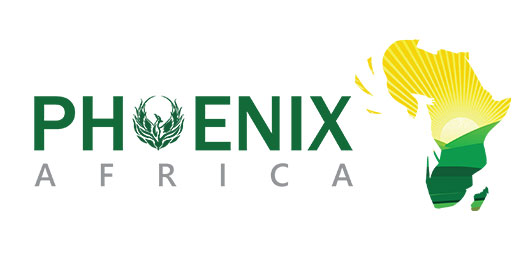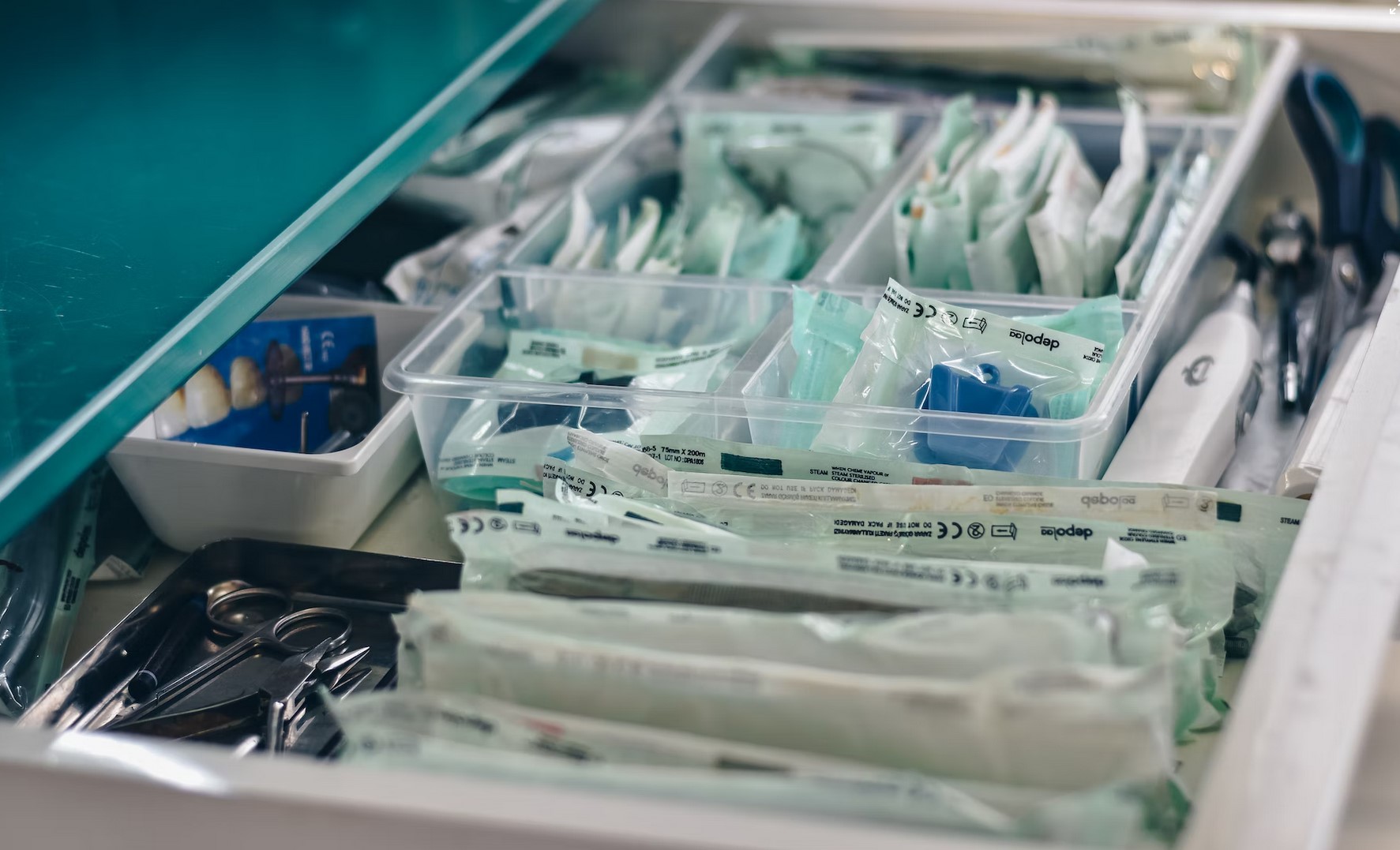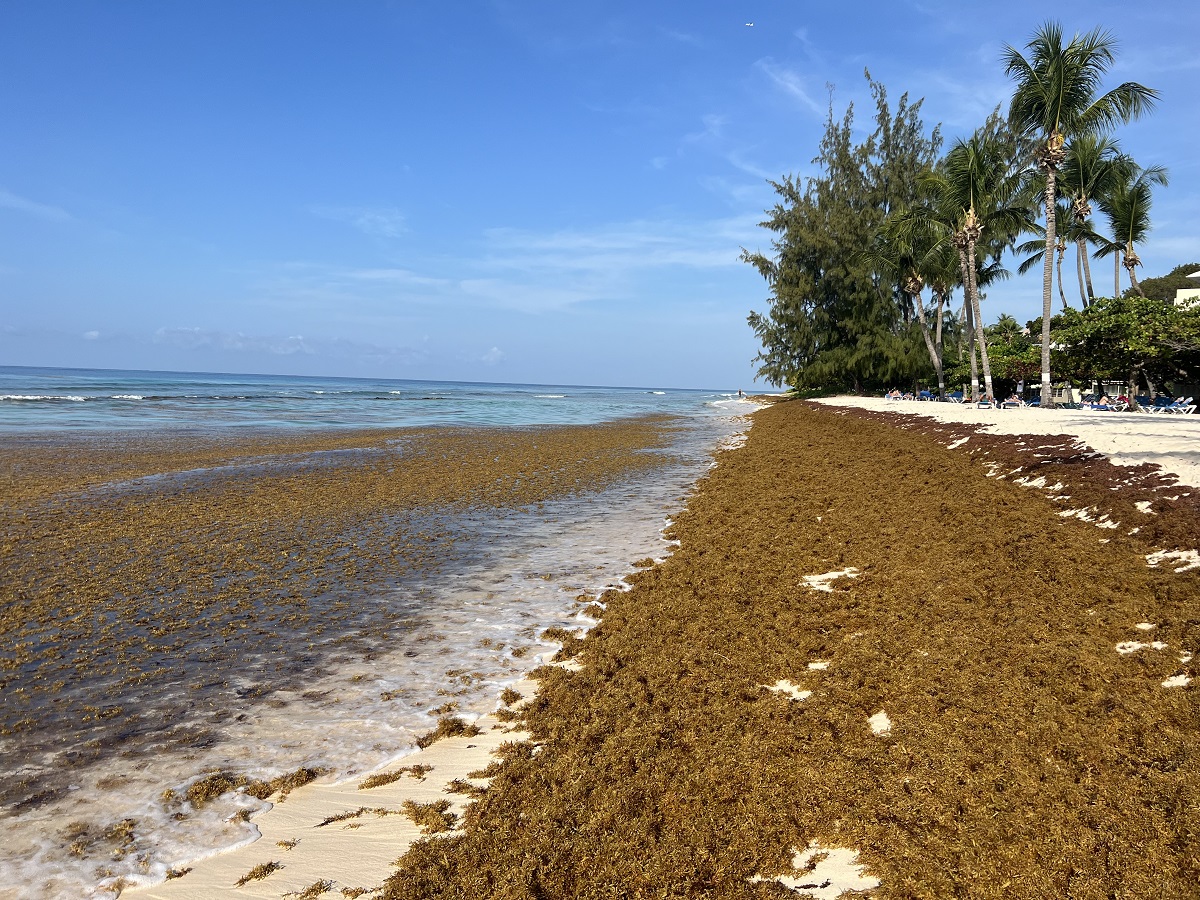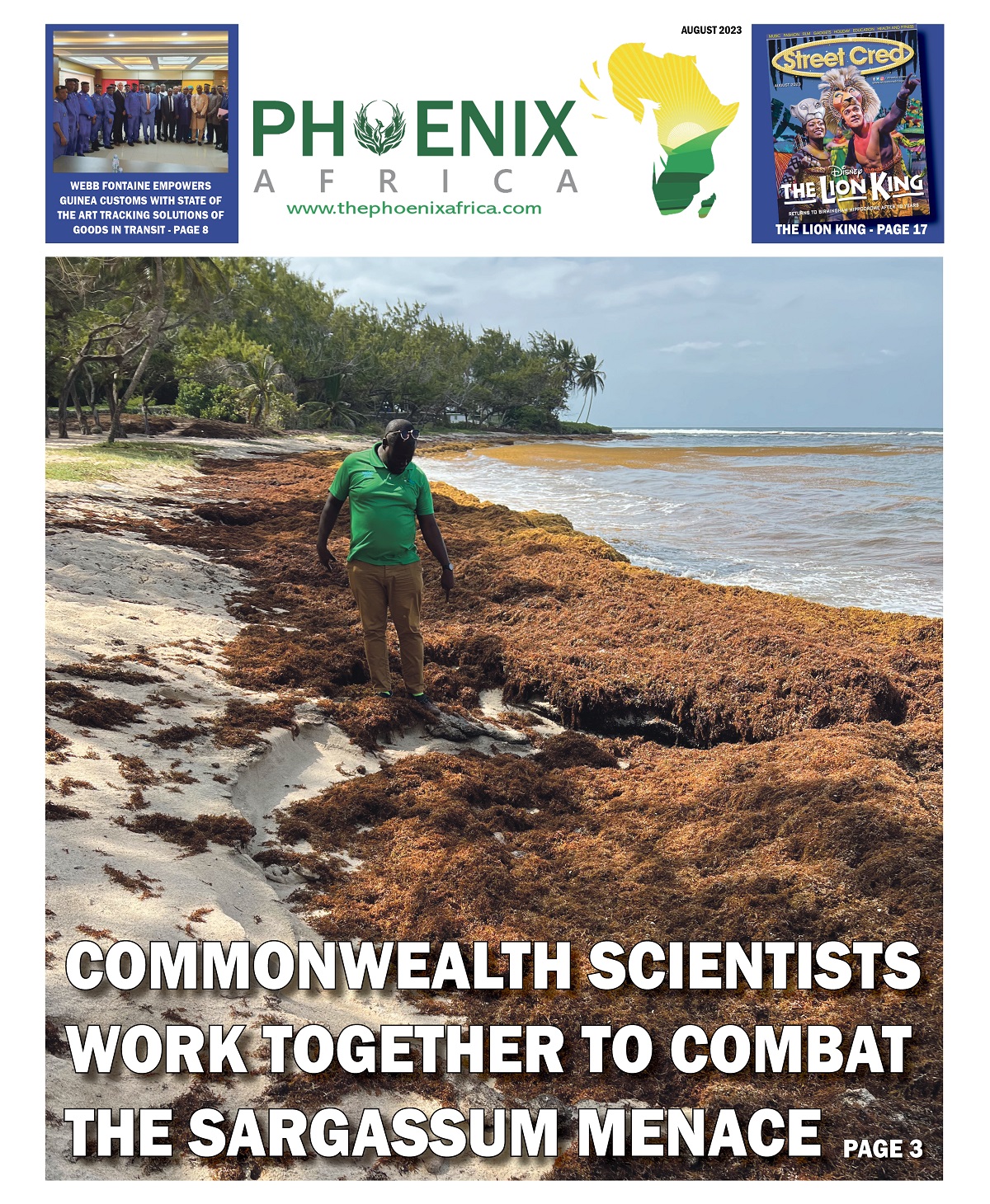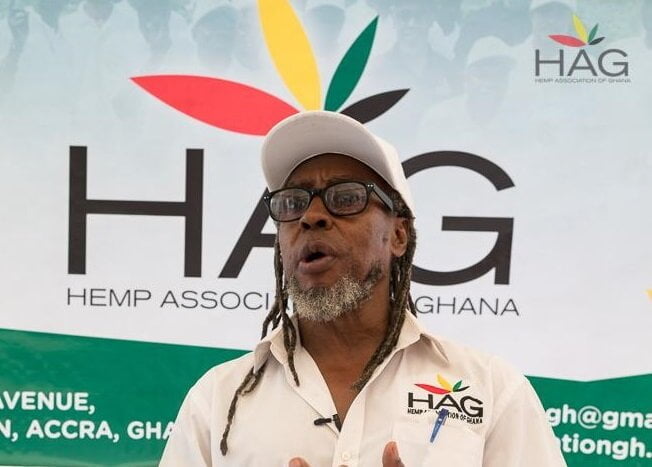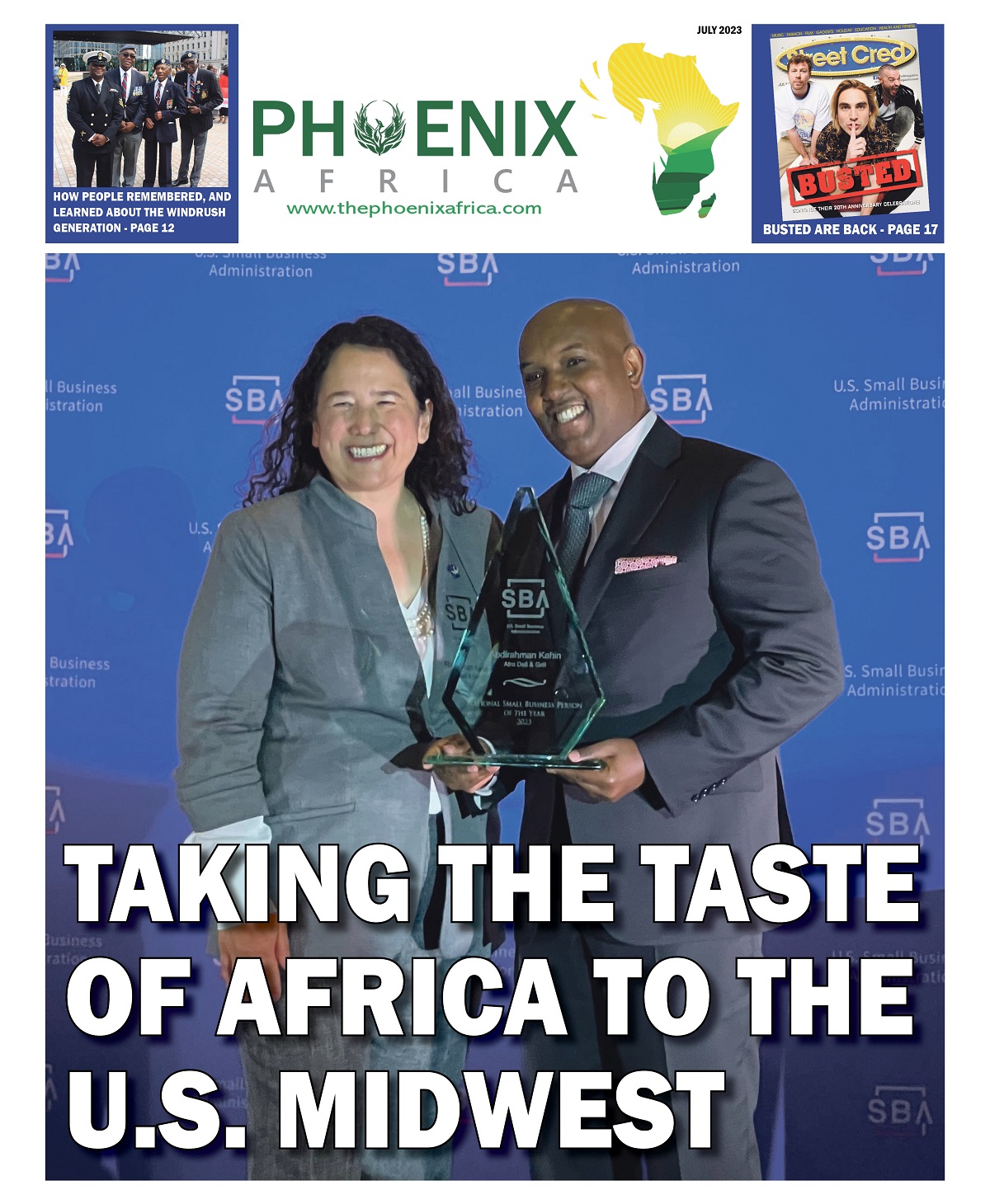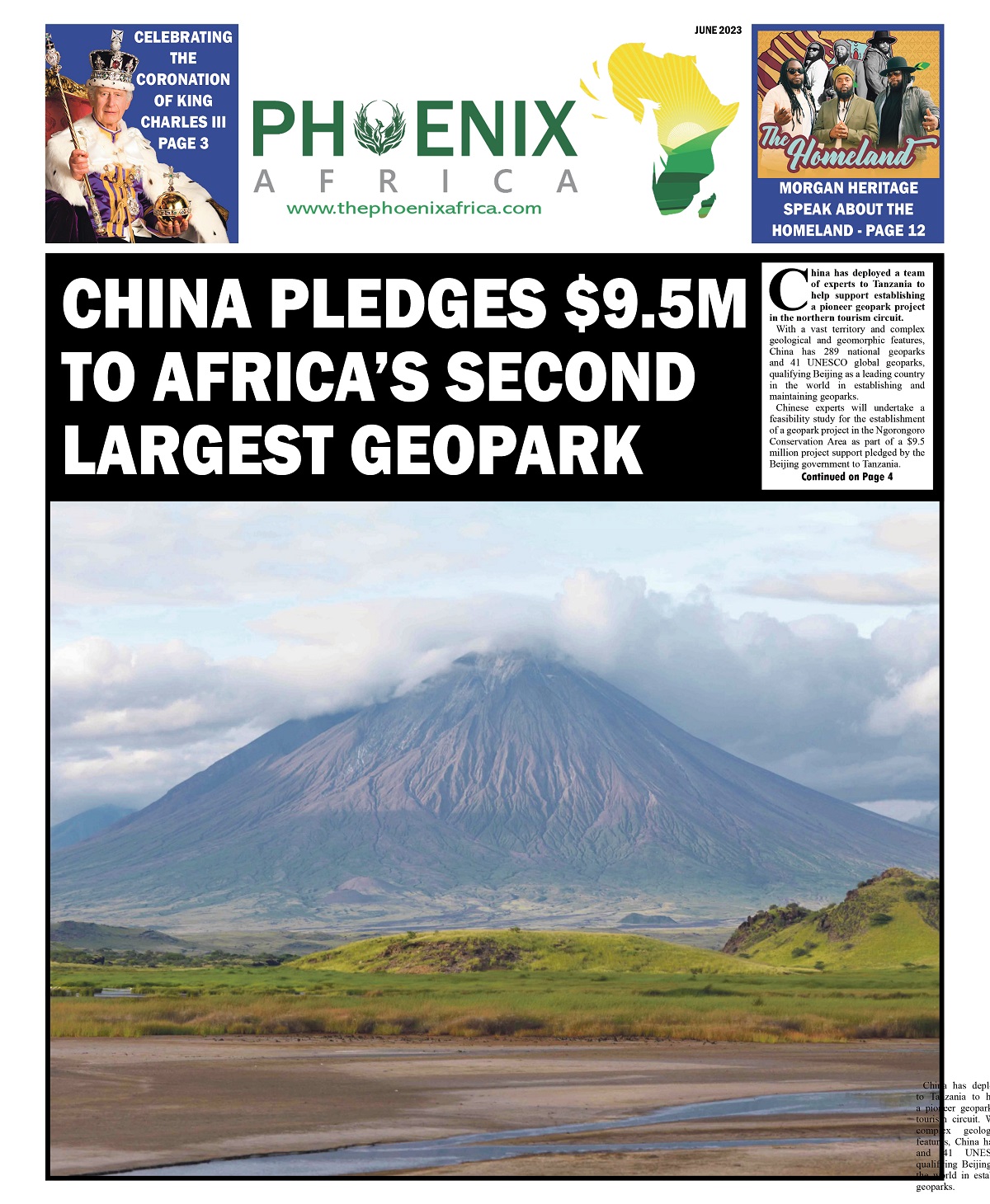Whether we like it or not, Nigeria has to start manufacturing medical equipment as nobody can supply 200m people with their healthcare requirements
by Ayo Akinfe
AS things stand, Nigeria produces next to nothing and is arguably the most parasitic economy in the world and this crisis is nowhere more pronounced than in the medical equipment sector. Covid-19 exposed Nigeria for what she was - a dependent economy that exports crude oil and then uses the proceeds to import everything it needs.
Nowhere is this dependency more pronounced than arguably in the pharmaceutical industry where Nigeria is effectively a parasitic dependant on the rest of the world. According to a recent study of four of Nigeria's six geo-political zones for instance, which make up nearly half of the population with 106m people and representing about 50% of gross domestic product (GDP), the local drug market is valued at $3bn annually.
Just to put everything into perspective, India and China both have populations of 1.4bn and are served by 10,000 and 5,000 pharmaceutical companies respectively. Africa in contrast has a population of 1.1bn, which is served by just 375 drug companies, while Nigeria with population of 120m is served by a mere 110 companies.
Globally the pharmaceutical market was worth about $1.17trn in 2021 growing and is growing at rate of about 5.8% per annum. Emerging markets display the highest growth rates in pharmaceuticals because population and consumption increases are among
the major drivers of growth in the sector.
Spending on health care is growing disproportionately with rising household income and the pharmaceutical market in Africa is estimated to be worth between $40bn and $65bn a year. Despite high growth rates, access to medicines remains a problem in sub-Saharan Africa as the countries of the region are highly dependent on imports for the supply of essential medicines.
In countries with pharmaceutical manufacturing in the sub-Saharan African region, the share of local production lies just between 10 and 30%. This varies among countries with a more substantial pharmaceutical sector, such as Ghana, Kenya, Nigeria and South Africa, and those with no manufacturing at all.
National household consumption of medicines and hospital services was reported at $4.7bn in 2020, with $2.8bn and $1.4bn worth of products imported into Nigeria in 2020 and 2021 respectively. India is the leading supplier to the Nigerian market, exporting about $636m and $441m worth of products in 2020 and 2021 respectively.
During the coronavirus pandemic, wealthy Nigerians were shamelessly donating money to buy medical equipment from abroad but in their ignorance, they failed to realise that nobody had any surplus to sell. In war time, local production is the only way to survive and that pandemic should have taught us to put our economy on a war footing but alas, our, poverty of thinking is unprecedented.
According to the Pharmaceutical Manufacturers Group of the Manufacturers Association of Nigeria (PMG-MAN), the sector has immense potential. It currently has 99 registered members and believes that the Nigerian pharmaceutical sector has the potential to be a leader in the production and distribution of pharmaceuticals across sub- Saharan Africa.
There are currently nine Nigerian pharmaceutical firms who export various pharmaceutical products across the West African region. Nigerian companies active in the Economic Community of West African States markets include Drugfield Pharmaceuticals, Emzor Pharmaceutical Industries, Evans Medical, Fidson Healthcare, GlaxoSmithKline Nigeria, May & Baker Nigeria, Mopson Pharmaceutical Industries, Neimeth International Pharmaceuticals and PZ Cussons.
In a recent paper on the Nigerian pharmaceutical industry, the Lagos Business School recommends that collaboration should be encouraged with more established companies in other climes focusing on research and development of select molecular types that are applied to treating ailments faced by majority of Nigerians to advance the manufacturing segment. There is now a wide-ranging consensus that local pharmaceutical production in Nigeria and in sub-Saharan Africa in close proximity to where medicines are needed can reduce dependence and improve health outcomes for the population.
Opening the regional markets and increasing production and distribution of essential medicines will be critical next steps to fully exploit the opportunities in the industry. Decentralising operations from the Lagos is a vital next step as the south-south, southeast, northwest and north central geo-political zones, which have a combined market of $3bn, are only served by a total of 20 pharmaceutical manufacturers.
However, things are changing as Neimeth International Pharma has recently moved its operations to the eastern corridor. There are now plans to establish the Enyimba Economic City (EEC) in Aba in Abia State, which will serve as an industrial estate and would constitute an ideal location for a pharmaceutical manufacturing facility.
To serve as a manufacturing hub of goods that include shoes, automobile parts, etc, the EEC is a 9,464 hectare special economic zone that is planned to connect nine states across the southeast and south-south geo-political zones. It will look to turn the area into a global business hub with captive population of about 60m, with road and rail links to other parts of the country.
Also, the EEC will leverage on existing and improved new high grade roads, rail, airports, dedicated inland port connected to seaport, active gas pipeline networks and other world class infrastructure, like a 540MW gas powered station, a 309,390m3 water works and communication and smart city technology. With a planned intermodal logistics hub connected to a seaport by rail, EEC promises to give pharmaceutical manufacturers a cost and time savings advantage comparable only to global destinations like what Dubai is to the Middle East.
Abia state where the EEC will be located has 704 government-owned medical facilities, 236 registered private health facilities located mostly in semi-urban and urban areas and 11 health training institutions. However, the real opportunity is broader across to neighbouring countries in West Africa where pharmaceutical imports have been valued at $2.4bn.
After the attack on Pearl Harbour in December 1941, US president Franklin Roosevelt invited the chairmen of Ford, General Motors and Chrysler to the White House and tasked them with mass producing armaments. They went on to shock the whole world by producing tanks, ships, submarines, aircraft, lorries, assault rifles, machine guns, artillery pieces, etc in such huge quantities that Germany stood no chance of winning the conflict, whioch is what Nigeria needs to now do.
During the coronavirus pandemic, we saw this spirit in action again with General Motors and its Chinese joint-venture partner SAIC Motors making machines to manufacture surgical masks at a plant in the southern Chinese city of Liuzhou. Across industry and geography, firms began redeploying production lines to boost the manufacturing of needed supplies to meet the needs of the coronavi8rus pandemic.
Machinery usually reserved for items like iPhones, cosmetic goods and chemicals was converted to churning out surgical masks, hand sanitizers and other forms of medical supplies. In the UK for instance, Prime Minister Boris Johnson privately met with up to 60 business leaders and asked them to help build medical equipment.
He told companies for instance to manufacture as many new ventilators as possible, setting a target of building 30,000 new ventilators from scratch over a fortnight. Carmaker Rolls-Royce for instance was one of the companies explicitly asked to make health equipment like ventilators.
In France, LVMH, the luxury goods company that owns brands Louis Vuitton, Christian Dior and Givenchy, said that factories that make perfumes and other cosmetic products will shift production to hand sanitizers. A company spokesperson said LVMH has all the necessary skills to produce hydro alcoholic gels and aims to make 12 tonnes in the first week.
In mid-February of 2020, when the outbreak in China reached its peak, President Xi Jinping called for a peoples war in fighting the virus and some 2,500 Chinese companies responded by contributing to mask-making efforts. For instance, Apple device manufacturer Foxconn announced in early February that it would divert production lines in a newly-opened iPhone factory to produce face masks.
China’s state-owned oil producer Sinopec, then released a 48-hour long live stream of a chemical factory that it converted to make raw materials for face masks and other medical supplies. Then, BYD, a Chinese electric vehicle company, then revealed that its car-turned-mask factories was producing 5m masks per day.
Nigeria's Heritage Bank did launch an ambitious scheme in partnership with Africanmed and the Chinese community in Nigeria aimed at developing the country’s health sector and reducing the rate of medical tourism. It is estimated that Nigeria loses about $1.3bn to medical tourism annually as sick patients travel to countries like India, the UK, the US, Thailand, Turkey, etc in search of treatment due to a lack of local facilities.
Nigeria is currently rated by the World Health Organisation as 187th out of 190 countries in its health index and this failure of the health system is traceable to thriving foreign medical tourism by prominent Nigerians. In a bid to address the crisis, Heritage Bank was offering capital to those wanting to bring medical equipment to Nigeria in a bid to get more Nigerians to receive treatment at home.
Heritage Bank chief executive Ifie Sekibo, explained that they would provide finance for interested buyers of the medical equipment from China. He added that Heritage already has a robust correspondent banking relationship with Deutsche Bank of China and Access Bank of China, so it can seamlessly open letters of credit for interested buyers.
Mr Sekibo said since some of the equipment cost millions of dollars, the bank would not expect the buyers to tie down such heavy amount of money. He added that it will support interested buyers with robust loans that will enable them to acquire the equipment and pay back over a period of two years.
From time immemorial, conflicts and trying times have always unleashed manufacturing and productivity. For instance, superstition more or less ended in Europe when the continent got hit with the Bubonic Plague in 1665.
From that point on, Europeans accepted that medicine and not religious faith is the solution to ailments. Health and pharmacy were no longer considered heresy and doctors became more respected than priests
For me, Winston Churchill really came into his element in the run-up to D-Day when the maverick in him came out. He created a special directorate to manufacture all sorts of equipment to facilitate the landing on the Normandy beaches. These included floating battle tanks, mechanised minesweepers, barbed wire cutting vehicles, etc. Known as Hobart's Funnies because the directorate was headed by a gentlemen known as Percy Hobart, the directorate ensured D-Day was roaring success
During the pandemic, we were faced with an unprecedented crisis in Nigeria and that was the time for us to stand up and be counted in the community of nations. Apart from the fact that nobody can supply 200m with medical equipment to combat coronavirus, Nigeria owed it to humanity to make a significant contribution to this global effort to combat this pandemic. Most nations banned the sale of medical equipment, so whether Nigeria liked it or not, her import dependency simply has to end. In Japan for instance, electronics maker Sharp began making surgical masks, becoming the first domestic company outside the health industry to do so in response to a government call of increased production.
Sharp had a daily capacity of 150,000 masks, with the company receiving a 30 million yen subsidy from the Japanese government for its efforts. Foxconn Technology Group, Sharp's Taiwanese parent, also created its own mask production line at a manufacturing campus in Shenzhen that will supply its army of workers.
My heart bleeds at the fact that Nigeria did not establish a Covid directorate with production targets for facemasks, ventilators, testing kits, etc just like everyone else. We should not only have met domestic demand through internal production but also be a major supplier to the world.
For too long, the world has carried Nigeria on its back and it is time for this nonsense to end. Enough is enough. It is time for the world's largest black nation to start pulling its weight and cease to be a parasitic leach on the rest of humanity
In India for instance, they wasted no time. as soon as the pandemic broke, they resolved to make their country the pharmacy of the world. India manufactured more Covid-19 vaccines than any other nation on earth during the pandemic.
I am at a loss as to why the likes of Pfizer, GlaxoSmithKline, Novavax, Johnson & Johnson, Moderna, etc, have not been wooed with everything we have to come and open manufacturing plants in Nigeria. Even if we could not manufacture sophisticated drugs, surely, we can easily make these basis test kits. I cannot believe that the federal government has not asked the Chinese manufacturers of this product not to open a plant in Nigeria
Given that three quarters of Nigeria's Ajaokuta Steel Mill is now lying abandoned taken over by weeds, rodents, wild animals and rust, I would have converted it into a ventilator producing facility immediately. My first step would be to form a holding company, maybe name it Nigerian Medical Supplies.
In this company, the federal government would hold a 25% stake and then I would invite a global medical equipment manufacturer and a domestic entrepreneur like Aliko Dangote to take a further 25% each, with the remainder of the company sold to the general public. This company would have been charged with churning out 30,000 ventilators a year to start with.
Its first step will be to reconfigure the Ajaokuta production lines. All steel for the venture will be supplied by the Aladja Steel Plant which must be revived, while all plastic for the plant will be supplied by the Dangote Petrochemical Plant in Ibeju-Lekki. In exchange for supplying five years worth of plastic to the facility, I would offer Dangote Industries a 25% stake in the venture
Dutch company Phillips, is a major manufacturer of medical equipment. It already has a presence in Nigeria, so would be my preferred choice as a partner. Due to the Covid crisis, the company has already doubled the number of ventilators it manufactures to 2,000 per week but alas, it makes none in Nigeria.
So chronic was the global scarcity of ventilators at the height of the Coronavirus pandemic that New York’s Governor Andrew Cuomo signed an executive order allowing the National Guard to take ventilators from hospitals in areas of the state that do not have a lot of cases and redistribute those in need. Why Nigeria did not seek to cash in on this crisis is one of the wonders of the world.
